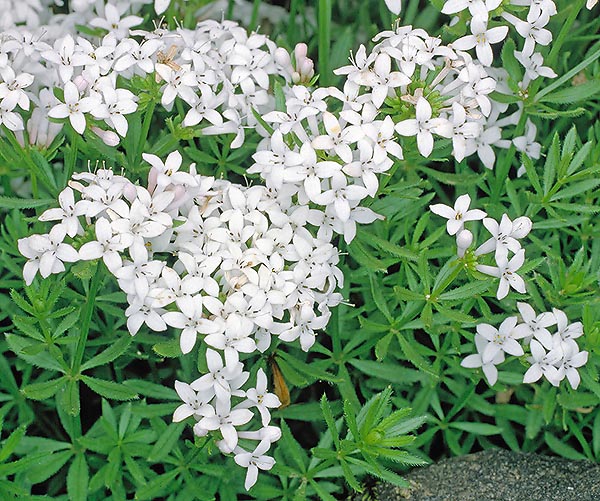Family : Rubiaceae

Text © Pietro Puccio

English translation by Mario Beltramini

Fairly rare species in the wild. Resistant to cold © Giuseppe Mazza
The Asperula hirt Ramond (1800) is native to rocky calcareous and stony areas of central and western Pyrenees (France and Spain) between 1.200 and 2.600 m of altitude.
The name of the genus comes from the Latin “asper” = rough, as well as the name of the species “hirta” = rough, hirsute, with reference to the leaves covered by short hairs, rough to the touch.
Common names: “aspérule hérissée” (French); “mat woodruff” (English); “Meister”, “Rauher Waldmeister” (German).
Perennial herb, 20 cm tall, compact, showing verticillate leaves, in groups of six, lanceolate, of a pale green colour and ciliate on the margins. The funnel shaped flowers, wide about 6 mm and united in terminal inflorescences, are of a pink-white colour, with four petals and come out in July-August. The fruits are glossy blackish purple berries.
Plant rather uncommon in the wild, resistant to long periods of drought and to low temperatures, is at times utilized in the rock gardens.
→ To appreciate the biodiversity within the RUBIACEAE family please click here.
